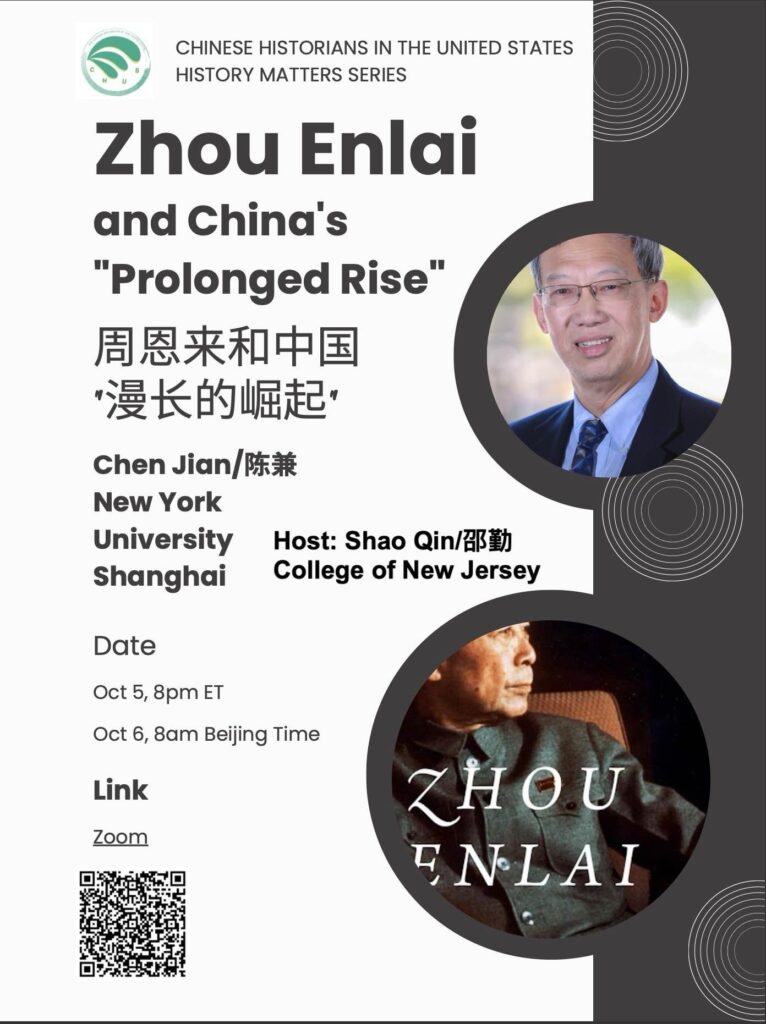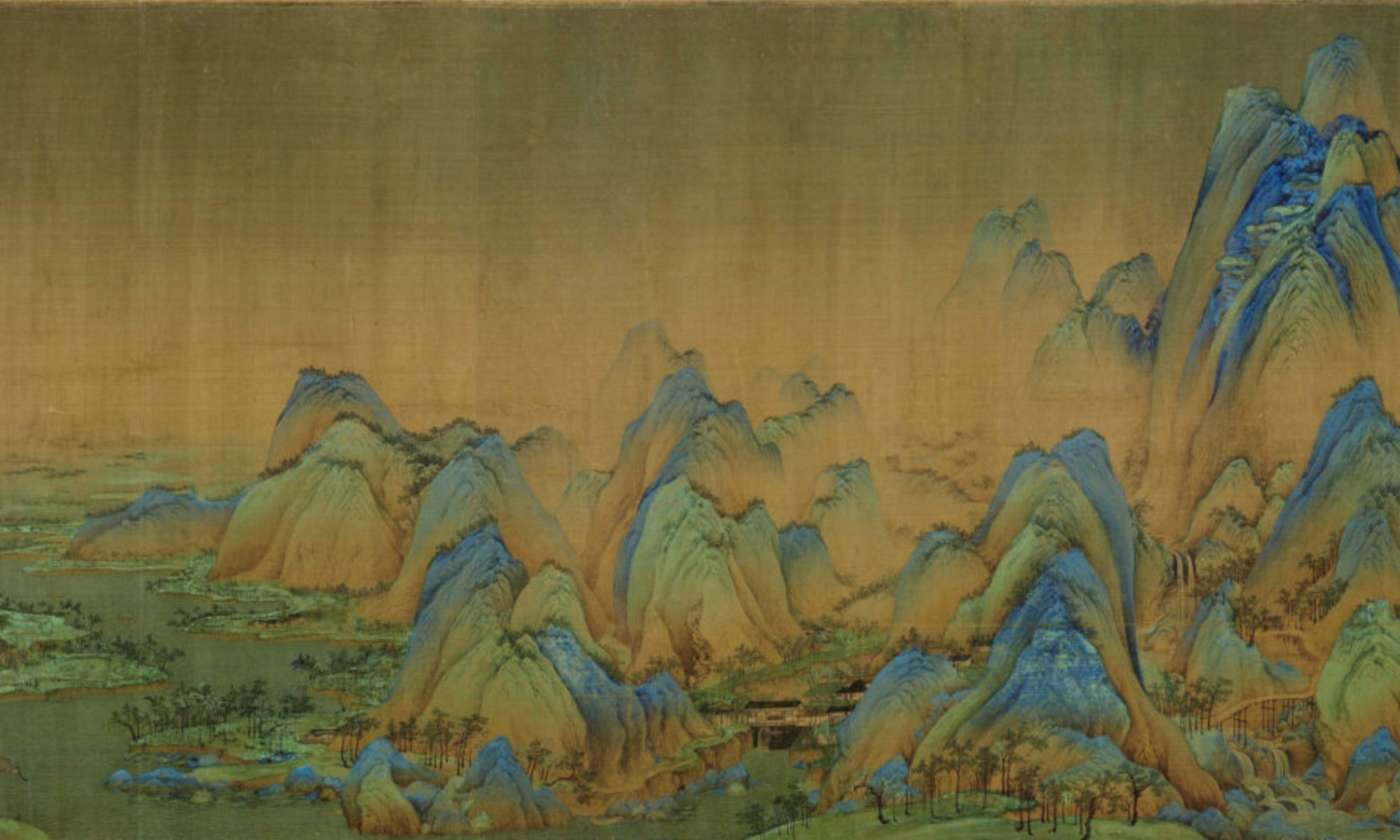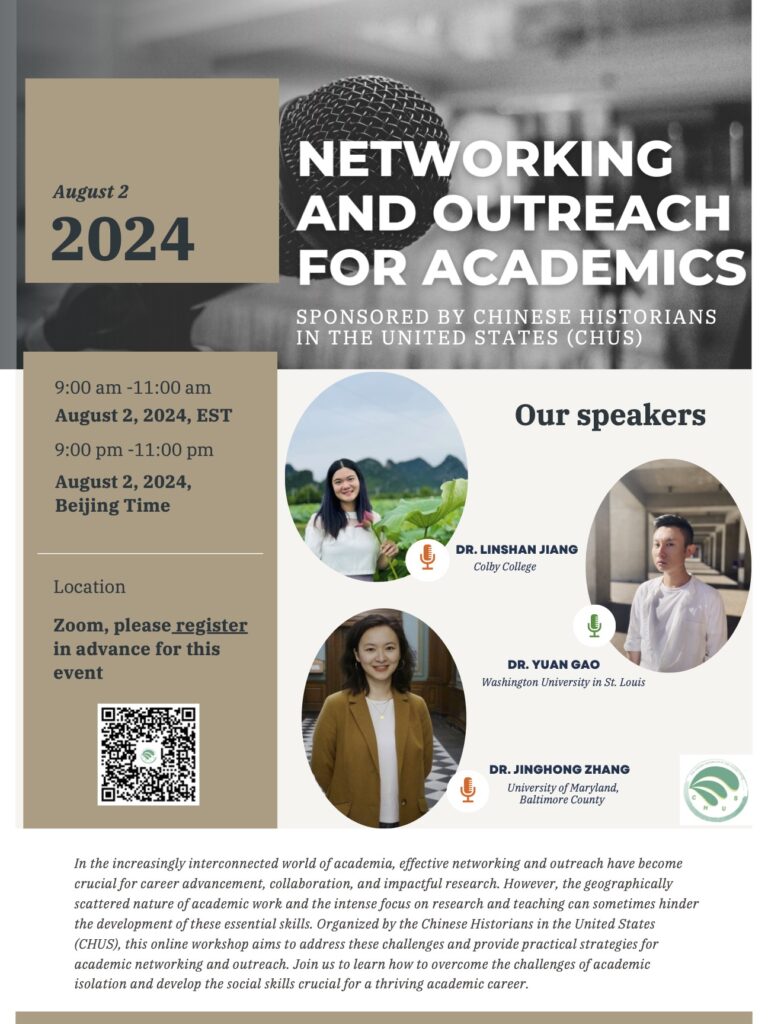The CHUS board is seeking proposals of FULLY ORGANIZED roundtables or paper panels for the 2025 AHA. CHUS will be offering the following two kinds of sponsorships at the AHA, and each type has a different submission procedure, deadline, and AHA- and CHUS-membership (or CHUS conference registration fee) requirement. Below are the details:
- Co-sponsorship of a session with the AHA program committee:
Definition: A session that CHUS co-sponsors with the AHA must be first vetted by the CHUS Board and then submitted to the AHA Program Committee. It will be evaluated by the AHA Program Committee like a regular AHA session, but having a CHUS co-sponsorship will enhance its likelihood of being accepted by the AHA Program Committee.
Membership requirements: AHA membership is required of all US-BASED historians participating in a session with CHUS-AHA co-sponsorship. (This also means that NON-US based historians or scholars from disciplines other than history are exempted from the AHA membership requirement). In addition, the organizer and at least 2/3 of the paper presenters (or speakers if roundtable) of a CHUS-AHA co-sponsored session must be active CHUS members.
CHUS membership or CHUS conference registration fee requirement: so long as the proposed session fulfills the CHUS membership percentage requirement specified above, the non-CHUS members in the session do not need to become CHUS members or pay a CHUS conference registration fee, although they are highly encouraged to join CHUS for the membership benefits it offers.
Proposal submission procedure and deadlines for co-sponsored sessions:
If you are interested in proposing a session for AHA-CHUS co-sponsorship, please 1) submit your session proposal to Qiong Zhang (at zhangq@wfu.edu) for vetting by the CHUS BOARD no later than Saturday Feb 10, 2024, and then 2) submit your finalized session proposal directly to the AHA program committee by its deadline of Thursday February 15, 2024 at: https://www.historians.org/annual-meeting/proposals/call-for-proposals
AGAIN: for a session proposed for an AHA and CHUS co-sponsorship, you are responsible for submitting your own session proposal to the AHA Program Committee, just like any other regular AHA session proposal. PLEASE prepare your proposal based on the requirements laid out in the instructions at the above AHA portal. While filling out the AHA online session proposal submission form at this website, please indicate that your session will be co-sponsored by CHUS; there is a line near the beginning of the proposal form asking for this information. Doing so would greatly enhance the chance of your proposal being accepted by the AHA, as the committee will know that there is already a substantial audience for your session.
If your session has been approved by the CHUS Board for co-sponsorship but not accepted by the AHA Program Committee, your session will be automatically converted into a CHUS solo-sponsored session.
Definition: A session sponsored by CHUS alone is counted as part of the AHA affiliate program. It is primarily vetted by the CHUS Board and secondarily by the AHA Program Committee. Only a short session abstract (90 words of text plus a weblink) will be carried in the AHA online program; visitors to the AHA program page for your session will be able to follow the weblink to find your full program description on our CHUS conference website.
AHA Membership and Conference Registration Fee requirements: AHA membership is NOT required if you only participate in a CHUS solo-sponsored session whether or not you are a US-based historian. However, all participants in a session taking place at the premise of the AHA, including all CHUS solo-sponsored sessions, are required to register for the AHA meetings and pay the registration fee.
CHUS membership or CHUS conference registration fee requirements:
In theory, active CHUS membership is required of all non-student paper presenters or roundtable participants in sessions with solo CHUS sponsorship, but non-CHUS members are also very welcome to participate in such sessions provided that they pay a CHUS conference registration fee of $40 to help CHUS cover the expenses it pays to the AHA for the use of the conference room and other associated AHA services and to the conference hosting hotels for A/V rentals. This requirement must be met by mid-May (the exact deadline will be announced in the CHUS Board’s letter of session acceptance issued in early May). (This CHUS Conference fee is NOT to be confused with the AHA Conference Registration Fee; the latter is charged to all participants in all sessions taking place at the AHA.
To avoid any confusion on this issue, please allow me to highlight two points here again: 1) students presentingin a CHUS solo-sponsored session are exempted from this active CHUS membership (or CHUS Conference fee) requirement, though they are highly encouraged to join CHUS for the wide-ranging membership benefits it offers, especially to those at the early stage of their careers; 2) Those serving on CHUS solo-sponsored sessions only as Chair and/or Discussants are also exempted from this membership or registration fee requirement.
Information on how to join CHUS and the variety of benefits that a CHUS membership offers may be found here: http://www.chinesehistorians.org/membership/
What to include in a proposal for a CHUS solo-sponsored session and when and how to submit it:
What to include on your CHUS solo-sponsored session proposal:
- Name and contact information of the session organizer
- The title of the proposed session
- A short session abstract of up to 90 words
- A longer (200-300 word) session abstract
- For paper panels: please also provide the titles and names of presenters of individual papers and a 200-300-word abstract for each paper;
- Names, current institutional affiliations (if none, please use “independent scholar”), and email addresses of all individuals on the session, including chair, discussant, and all roundtable participants or paper presenters.
When and how to submit your session proposal:
Please email your session proposals to Qiong Zhang (at zhangq@wfu.edu) for vetting by the CHUS Board no later than Sunday April 21, 2024. The CHUS Board will announce its decision in early May.
Guidelines for ALL session proposals with either type of sponsorship:
- Session Format: Proposed sessions can follow either of two formats:
- A paper panel, generally consisting of three or four presenters, a chair, and a discussant. It is recommended that sessions with four presenters go without a discussant to make adequate room for interaction with the audience. While presenters may also chair the same panel in which they present, they should NOT be both a presenter and a discussant in the same panel.
- A roundtable, consisting of a chair and 3-6 participants. The chair in a roundtable may also serve as a participant. Structurally, a roundtable should be sufficiently different from a paper session, in that it should devote at least half of the session time to conversations among participants and between the participants and the audience.
- Regarding possibilities of participation in multiple roles in a session and/or in more than one session: 1) CHUS has a rule limiting the purely service roles (i.e., serving only as chair and/or discussant) to no more than one session per person. If you chair a session in which you also present a paper, that does not count as a “purely service role”. 2) CHUS rules do not allow a participant to both present a paper and serve as a discussant in the same panel; it is perfectly fine if you chair a session in which you are a presenter/speaker or a discussant. 3) Currently CHUS does not have a rule limiting how many sessions in which you may present a paper (in a paper panel) and/or serve as a speaker (in a roundtable). If we are beginning to have too many individuals presenting in more than two sessions, impacting the diversity of the CHUS program as a whole, the CHUS Board may consider implementing a rule.
CHUS POLICIES regarding NO SHOW for all participants accepted into the finalized CHUS program:
It is paramount that our panelists uphold the academic integrity and professional standards of CHUS. Please be reminded that CHUS does not have the technical resources to hold a session via teleconferencing at the AHA, so only individuals who are able to participate in the AHA onsite should be included in a proposed session. Once a panel has been accepted into our AHA program, which will be finalized by mid-May, all individuals, members and non-members alike, who participate in it as panelists, discussants, or chairs must fulfill their obligations as stated in the proposal and attend the conference. In the event that an illness or other emergencies prevents a panel participant from attending the meeting, the absentee must inform their panel organizers and the CHUS conference coordinator (Qiong Zhang, zhangq@wfu.edu) of their situations at the earliest possible time andmake arrangements for a co-panelist or some other conference attendee to deliver their papers or comments or chair their panels on their behalf. Failure to do so will result in a 3-year suspension from CHUS-organized AHA panels.
CHUS Marketplace (a Google Doc) for those looking to organize a session or join one that is being formed: [NOTE: the link to this Google Doc has been redacted from this newsletter to protect the private information shared by members on this document. Please contact me at zhangq@wfu.edu if you need the link. Thank you!]
While we can only accept proposals of fully formed sessions, we have set up the above Marketplace to facilitate information exchange among our members/friends looking for co-panelists. If you are interested in organizing a CHUS-sponsored or co-sponsored session for the 2025 AHA in New York and are looking for more panelists, a chair, or a discussant; if you have a paper to present and are looking to join a suitable panel: please check out this MARKETPLACE Google Doc! CHUS members who are available to serve as a chair or discussant are also welcome to enter your names on the Google Doc!
Please be aware, though, that this is just a Marketplace: it facilitates you finding each other, but CHUS will NOT pair you up and organize sessions for you. It is YOUR RESPONSIBILITY to follow up with potential co-panelists you find on this Google Doc, develop your session proposals, and meet the respective session proposal deadlines stated above.
Thank you all for your kind attention. If you need clarifications or have any questions, please do not hesitate to reach out to me. Otherwise, I look forward to receiving your session proposals for the CHUS-AHA co-sponsorship by Saturday February 10, 2024 or for CHUS solo-sponsorship by Sunday April 21, 2024.
Wishing you all a pleasant spring semester,
Zhang Qiong, on behalf of the CHUS Board, 2024-2026


